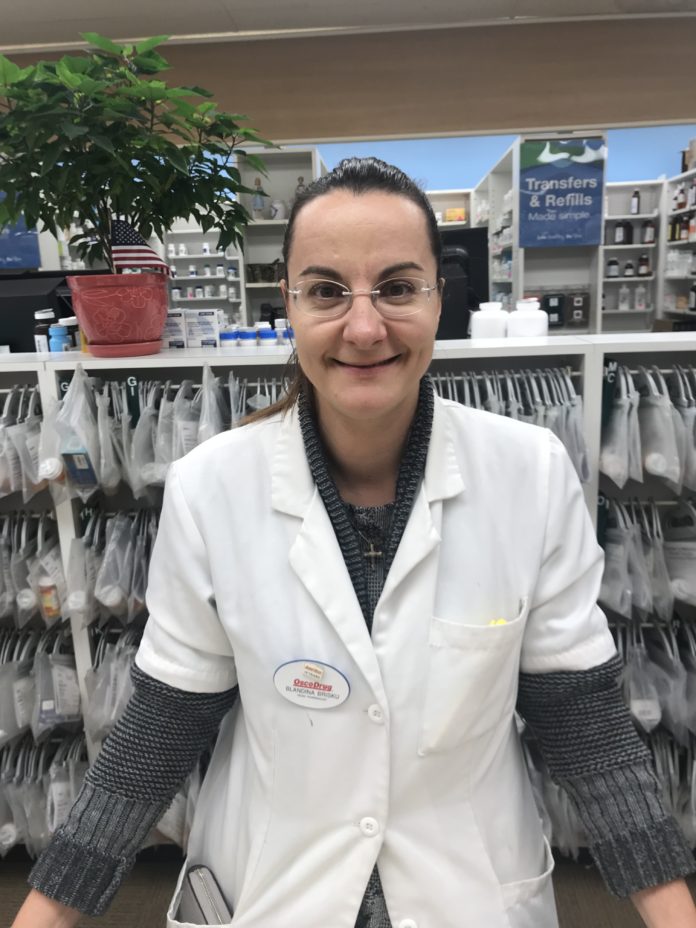In last week’s issue of Chicago Jewish Home, I interviewed Moshe Lichter. Many emails were sent expressing a deeper appreciation for Moshe. I believe the impact on his life was positive, and so many people are treating Moshe with a new found respect. I spoke to Moshe, and he feels more understood and mentioned that someone even asked him to sign a copy of the article. Again, if anyone has any leads on a caretaking job or a place to rent for Moshe, please email me at [email protected] or call Moshe directly at 872.222.3711.
There is a concept given over in Tanya that explains the process by which we come to a clear understanding of some of Hashem’s wisdom. These concepts are Chochma, Bina, and Daat. Chochma is an initial thought or inspiration, Binah is the intellectual understanding of that thought, and Daat is making that thought a reality through action.
I think a lot. Sometimes it feels like I spend most of my time thinking. Then I spend even more time thinking about my thoughts (actually, I’m not really sure if that’s true. I’ll have to think about it). The problem with this tactic is that I don’t always accomplish what I’m thinking about. I just keep thinking in circles, hoping to change myself through thinking about what I want to change (I’m getting tired just listening to myself). Our thoughts only get us so far, but if we take those thoughts to the next level of action, they can become a tangible reality. I’ve learned that if we envision the person we would like to become, and then actually start behaving that way, it really does begin to change our character. By reaching out and learning about others, I’m beginning to see this transformation within myself. I am recognizing that people are actually good. Between the news, social media and politics today, it’s hard not to become cynical and judgemental. We put others into little boxes of our own understanding and make generalizations about entire groups of people. My own insecurities and judgements are fading, because I’m learning that everyone wants basically the same things; connection, purpose and to be loved and appreciated.
For years, I’ve been getting prescriptions for my family from the Jewel Osco pharmacy. Many times, I watch the pharmacists and technicians in awe. I wonder how they handle the stress of dealing with people who are either sick, in a hurry, annoyed by their insurance coverage or upset that their prescription isn’t ready yet (I’m usually one of them). I see how hard they work while answering calls, filling prescriptions, consulting with customers while remaining patient and composed. This week, I interviewed the head pharmacist. I asked her, because she is always smiling and treating the customers with respect and patience. After speaking with her, I realized that she is a special person whose outlook is positive and inspiring.
Meet Blondina Brisku:
Blondina is the head pharmacist at the Jewel Osco pharmacy in Evanston. She has been working for the company for 20 years, and since 2012 has been at this location in Evanston. Blondina is the head pharmacist, which means she is in charge of the pharmacy 24 hours a day, 7 days a week. Even when Blondina is not there, she is on call. If something goes wrong, G-d forbid, she is the one who has to go to court.
Blondina was born in the small town of Ulquin, Albania in 1977. Her father was one of the town’s lawyers, and her mother was a homemaker. Her parents instilled a strong drive for learning and getting an education. She didn’t have many material possessions, but when she did get something, she appreciated it so much. Blondina remembers a life of simplicity and loved her mother’s cooking.
“Back in Albania, the food was organic and natural. No GMOs or chemicals. My mother loved cooking and she cooked everything from scratch”.
Unfortunately, although life was simpler, it was much harder financially. Being able to have a job where you got paid weekly was not a reality. People would get paid monthly, sometimes having to wait months to get paid. Many times companies did not have the money to pay their employees. So, it was a struggle never really knowing if you could buy food from day to day.
By the age of 7, Blondina knew she wanted to become a pharmacist. Blondina’s twin brother, Gjerdj (pronounced George) was 6 years old when he had his first seizure and was diagnosed with Epilepsy. Their mother would take Blondina and Gjerj to the pharmacy each month to pick up his medications until the next doctor’s visit. Blondina explained, “The pharmacy in our town wasn’t in a big grocery store; It was a small shop. The ladies were so nice and were always smiling. I remember thinking as a child, ‘Oh my gosh! They’re giving medicine so my brother can take it so he doesn’t have seizures anymore. I want to do that! I want to give medication to people to make them feel better’. Ever since then that’s what I have always wanted to do”.
In 1996, at the age of 19, Blondina married her husband, Leke. Although he was born in Albania, Leke was living in America with his parents. On a trip back to Albania for a cousin’s wedding, Leke saw Blondina and wanted to meet her. Both were from traditional Albanian families, so first the parents spoke and agreed to allow the “shidduch”. After a few dates, they got engaged.
Blondina moved to America with her new husband, 22 years ago this December. Blondina began school here starting with English-as-a-second-language classes. Eventually, she applied to the University of Illinois Pharmacy school.
“By the grace of G-d, I don’t know how I got in. It’s tough to get into pharmacy school, but I managed to get in”. Until today, Blondina feels that completing pharmaceutical school was one of her greatest accomplishments.
Blondina used to travel back to Albania often to see her parents and brothers. Unfortunately, her parents are no longer living, and her schedule doesn’t allow for much traveling. Her two brothers come here to visit when they can. She’s been on trips with them to New York, Texas, and Florida. Although Blondina is from Europe, she never got a chance to see much of it. She would like to see Western Europe one day. Today, her twin brother is a journalist and married with a family in Albania. She has a younger brother, also in Albania, who is a Catholic priest. I asked Blondina about her beliefs. She comes from a Roman Catholic family with a strong belief in G-d.
“I am a very spiritual person. I believe in G-d and I pray. I respect everybody who does that. Like the Jewish community here. I love how you guys are so devoted. We use excuses about things, but then it’s so good to see a community where you know it’s your Sabbath, and you’re going to pray and be with family. You’re not going to let any of the secular things get in your way. It’s really tough to do. The more I work at the store, the more I’m in awe of your community”.
A side note: It’s been eye-opening to see the way people around us see our community. So far each person interviewed described a respect and admiration for the Jewish community’s way of life. This makes our job of being a Kiddush Hashem all the more important.
Blondina continued, “Life makes sense if you believe in something. There’s something else out there. When you feel lonely, depressed or sad, just knowing that G-d is with you is so good”.
I asked Blondina who she admires most in the world. “Mother Theresa. She was such a humanitarian. Her whole life was dedicated to helping people”.
After speaking to Blonina for a while, I realized that she too aspires to live a life devoted to helping others. I asked her how she handles her job and remains calm and patient. “I’m the person in charge. If I start freaking out, what will the other employees do? I have to lead by example, If I’m not nice to the customers, then the other employees can do whatever they want. At the same time, people do scream and yell, but it’s not because they don’t like me. It’s because they’re sick. Maybe they can’t afford the medication or maybe they were just at the doctor for three hours. Now, they are at the pharmacy, and they want their medication. They’re in pain. It’s not a personal thing. I’m here to help them. If I become mad too, how is that going to help? I’m a pharmacist because I want to help people. If one customer genuinely thanks me and thinks that I did something good for them, then I am happy. Just one person”.
Blondina’s outlook was inspiring. I asked her what she has learned after being a pharmacist for over 20 years. “My job has taught me patience and empathy. I recognize that we are all one. No matter what color, race, religion, male or female…we’re all one. So if I hurt you, I’m also hurting myself”.
Blondina describes herself as a health freak. She enjoys for looking for new alternatives online for healthy lifestyles. She enjoys reading self-help and organization books. She said that maybe the tidiness and organization is a result of being a pharmacist for so long. In her line of work, organization is key; mistakes can’t be made. She likes the simple things in life. She doesn’t need grand gestures or fancy dinners. For example, she likes the small gestures her husband makes; like making dinner occasionally, filling her car with gas or even making the bed before she gets to it.
I asked Blondina if she could give one piece of advice to the world, what would it be? “Love each other and love who you are with. Radiate love…Yes, Radiate love”.







